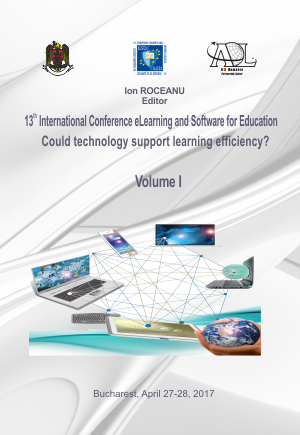DIDACTIC COMPUTER GAMES IN TEACHING AND LEARNING PROCESS
DIDACTIC COMPUTER GAMES IN TEACHING AND LEARNING PROCESS
Author(s): Veronika Stoffová, Roman HorváthSubject(s): Social Sciences
Published by: Carol I National Defence University Publishing House
Keywords: Didactic computer games; playful way of learning; learning by playing.
Summary/Abstract: Educational games not only entertain players, but they also have some educational targets (to understand and learn something, to gain certain skills, develop certain abilities, etc.). Didactic computer game that we want to introduce aims to help secondary school students understand a select few notions from the field of Informatics curriculum, which are prescribed in ICED3 (defined as mandatory technical terms in the national education program).This game will also help to build terminology system of students, acquire basic concepts and actively use them in the study, to acquire new knowledge, develop strategic thinking and entrepreneurial spirit. Building e-commerce and other digital computing technologies with minimal input capital and providing selected services, the player is starting his business activities, which expanded on the basis of income for services rendered. By provision of services, the student has to understand the queuing system and make some simulation experiments in an interactive way. To the basic offered assortment, we chose a few common computer components and information and communication technology tools in the field of hardware and software. The range is then gradually expanding, according to customer interest in buying. It is similar in services. First are offered selected basic services, which are common and frequently requested (print documents, photos, providing access to Internet services, provision of space on the server, etc.). Services according to customers request are gradually expanding. At diversifying and introducing new services have to get acquainted with them, to study the issue, to get acquainted to the essential characteristics of components, select the criteria for defining their quality, as well as criteria for purchasing decisions, while the player (student) is building his terminology system in the area of informatics, which is actually the main goal of the game. In the future we plan to expand our application and create a link to online stores for the purpose of buying and expanding range of sold goods.
Journal: Conference proceedings of »eLearning and Software for Education« (eLSE)
- Issue Year: 13/2017
- Issue No: 01
- Page Range: 310-319
- Page Count: 10
- Language: English

